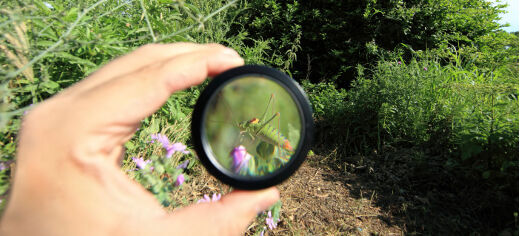
Ocean life triggers ice formation in clouds
Researchers have shown for the first time that phytoplankton (plant life) in remote ocean regions can contribute to rare airborne particles that trigger ice formation in clouds.

Researchers have shown for the first time that phytoplankton (plant life) in remote ocean regions can contribute to rare airborne particles that trigger ice formation in clouds.

A pioneering digital musician is following in the footsteps of physicist Brian Cox by being chosen to give a public lecture at the British Science Festival in Bradford (7-10 September).

Intensive agriculture is taking a toll on bats in the Western Ghats of India, but shade-grown coffee, remnant rainforest patches and riverine vegetation strips may help struggling species hang on.

Widespread species are at just as high risk of being wiped out as rare ones after global mass extinction events, says new research by University of Leeds scientists.

An entire ecosystem is at risk from the effects of climate change on the UK’s blanket bogs, scientists at the University of Leeds have warned.

Olympic boxer, Nicola Adams, and Sir Peter Hendy, Leeds graduate and the new Chairman of Network Rail, are amongst a host of distinguished individuals receiving an honorary degree this year

Businesses can benefit from access to leaders in commercial innovation, thanks to collaboration between the University of Leeds and Marks & Spencer.

University of Leeds researchers are playing a key role in a €7 million international collaboration, granted by the European Union's Horizon 2020 fund, to develop new, eco-friendly pesticides.

Parasites can play an important role in driving cannibalism, according to a new research which looked at cannibalism among freshwater shrimp in Northern Ireland.

The most extensive land-based study of the Amazon to date reveals it is losing its capacity to absorb carbon from the atmosphere.